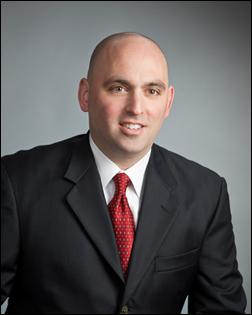Bryan D.
Primary Sclerosing Cholangitis

Bryan Donahue is a survivor, motivational speaker and author. His first book “On Borrowed Time” was recently published and written with Pulitzer Prize nominated author M. Rutledge McCall.
When Bryan was a 22 year old U.S. Marine in perfect health, he was dealt a blow most would not recover from. His shocking diagnosis of a rare chronic liver disease (Primary Sclerosing Cholangitis) that has no cure made him reevaluate everything he held sacred. Bryan’s mental shift came when he was told he had months to live and looked at material and situational pieces of his life that he thought were important and fortunately realized that the important pieces of the puzzle were mostly the little things and the people around him.
His book “On Borrowed Time, How I built a Life While Beating Death” and his motivational speaking engagements chronicle the transformation Bryan went through from the disease physically ravaging his body to the unbreakable mental state he needed to maintain in order to survive. He credits mental toughness in particular the power of positive thought for not only his survival, but for creating a superlative life that he lives to the fullest every day.
We asked Bryan a few questions about his experience, and he was gracious enough to answer them for us:
Q: What is PSC?
A: Primary sclerosing cholangitis (PSC) is believed to be an autoimmune disease of the bile ducts that causes inflammation and subsequent obstruction of these bile ducts. The inflammation blocks the flow of bile and ultimately causes cirrhosis, liver failure and liver cancer.
Q: How did you get diagnosed?
A: One day I was in so much pain that I sweat through my clothes and my body turned a glowing yellow color, a sign of jaundice. I went to the doctor and was sent to the hospital to have my Gall Bladder removed. While this was happening, the medical team biopsied my liver for the diagnosis.
Q: Why did you get a transplant?
A: After I was diagnosed I was put on a strict diet and medication to help relieve the symptoms of PSC. This regiment allowed me to maintain a relatively normal life. After 8 years the medical procedures and medication were no longer affective. I was suffering from end stage liver failure and the only definitive treatment for PSC is a liver transplant.
Q: What was the transplant process like?
A: I think everyone has a different experience with the process. I received a live donor liver from my brother in law. He decided to get tested to see if he was a match. The transplant team at Tufts Medical Center in Boston tested him for 3 months prior to the actual transplant. During this time the only information I ever received was about his testing was from him, and if for any reason he was not medically able to donate or if he decided he did not want to donate the only thing I would be told is that he was not a match for me. Once they decided Jeff was a match for me, the process started to speed up. I had pre-surgical testing and we were both told to be at the hospital the afternoon before the surgery for prep. The morning of the transplant we said goodbye to our family and went into the pre op together. My last memory before they medicated me was telling Jeff I loved him. I have to imagine my experience is completely different from someone receiving a cadaver liver from the unknown timing and availability of a match.
Q: What was the recovery like?
A: The recovery was for me had its ups and downs. I was in ICU for 3 days and they kept me sedated. My first memory was opening my eyes and seeing my wife and then the doctors removed the breathing tube. Later that day I was brought down to the recovery floor. They get you up and moving around pretty quick after that. I was released from the hospital after 12 days. I was told that after a transplant everyone has bumps in the road during recovery. Every recovery is different, but I had not prepared for these “bumps”. Six months after my transplant was the last time I was admitted to the hospital and was completely recovered at that point.
Q: What was the most important aspect to know during the process?
A: I think there were a few key things everyone should be aware of during an illness and during treatment. The first is to be informed. Know what is going on with you. Be involved in the decisions that are being made about your health. Ask as many questions as you can think of and do your research so you can make educated choices. The second aspect that was vital to my success was to have a great support system. The third aspect that was maybe the most important to me was to have a fighting positive mindset. Focus on winning and making the best of every situation no matter how small it may seem.
Q: How do you feel now?
A: It has been over 7 years since my transplant and I feel great. I still watch what I eat and focus on living a healthy active life. I am currently on only 2 different types of medication that I take twice a day. I pay extremely close attention to my body, if something does not feel right I get it checked out. I have follow up visits with my GI doctors and my transplant team once a year.
To learn more about Bryan or if you are interested in buying a copy of “On Borrowed Time”, please visit his website. $5 from every book purchased goes directly to the American Liver Foundation!
Last updated on September 14th, 2022 at 11:14 am